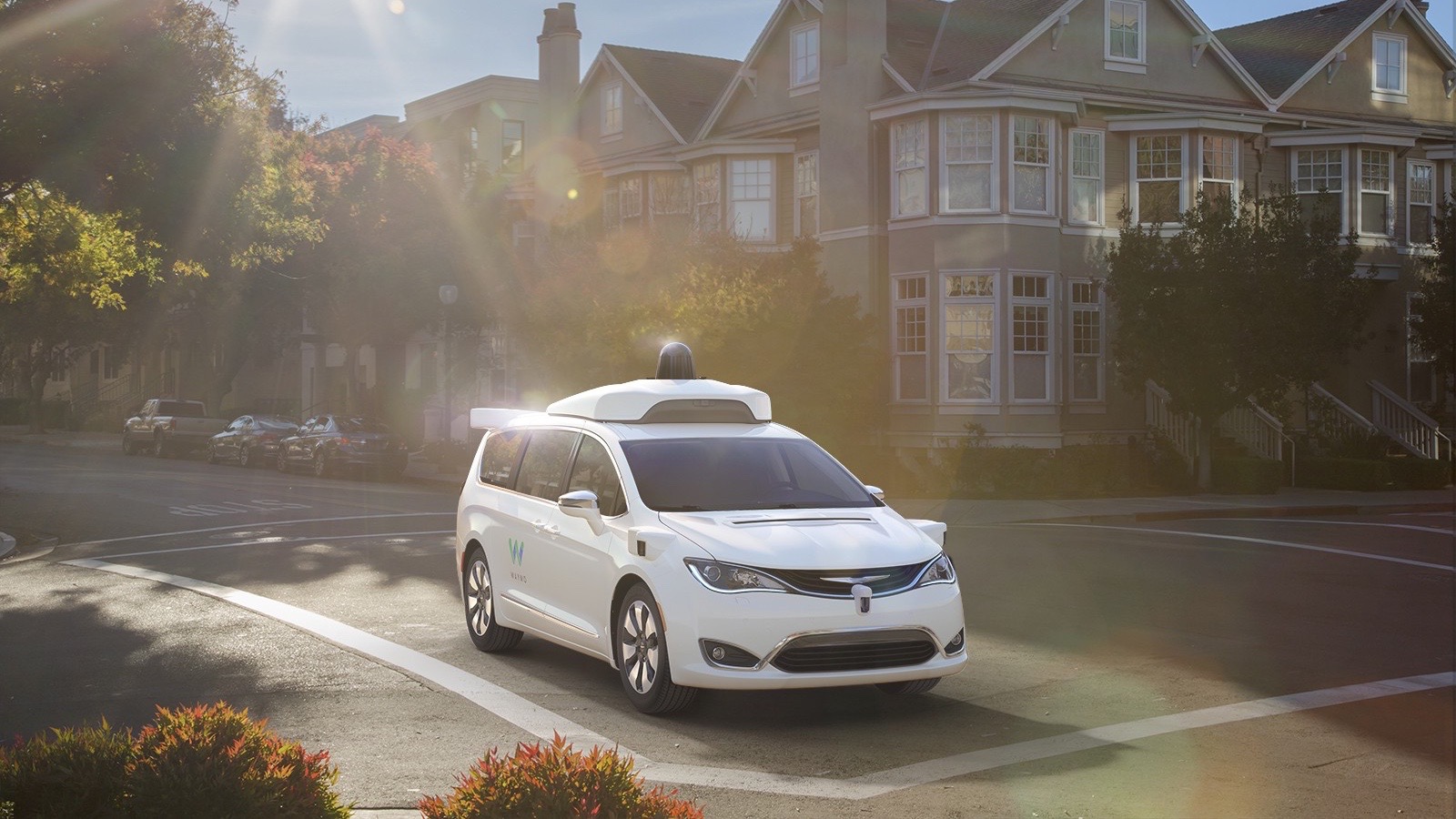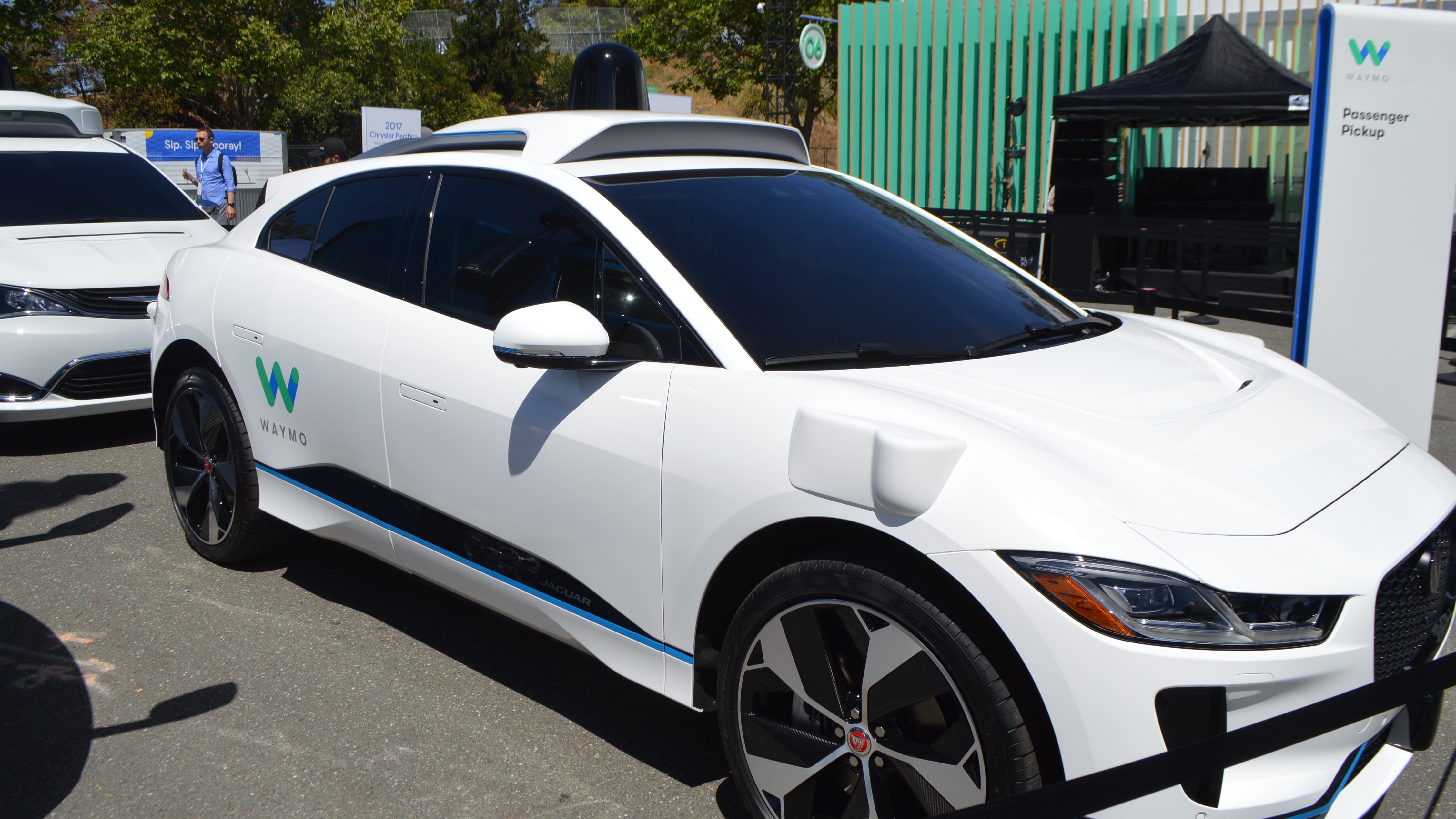There will soon be way more Waymo self-driving minivans on the road
And its driverless car tech could end up in your next vehicle

Earlier this year, we learned that Waymo, Google parent company Alphabet’s self-driving division, had purchased “thousands” of Pacifica Hybrid minivans from Fiat Chrysler Automobiles (FCA) to convert into self-driving cars.
Now, we know the exact number, and it has blown away our expectations of how quickly Waymo plans to expand its fleet.
CNBC first reported that FCA will produce 62,000 minivans for Waymo at a facility in Novi, Michigan co-run by Waymo and FCA. Thus, FCA can build Waymo’s self-driving sensors and cameras directly into the car’s frame during the manufacturing process.
As part of this partnership, FCA is also negotiating to license Waymo’s hardware and self-driving AI for its own dealership cars. Eventually, Chrysler could sell self-driving Pacificas directly to consumers.
Waymo’s 62,000 new vans will accompany its 20,000 new Jaguar I-Pace SUVs planned for the next couple of years. It hopes to officially launch a self-driving ride-hailing service in Phoenix by the end of 2018, and later in the San Francisco Bay Area.
“We're excited to deepen our relationship with FCA that will support the launch of our driverless service, and explore future products that support Waymo's mission,” Waymo CEO John Krafcik told CNBC.

FCA CEO Sergio Marchionne also said that, “FCA is committed to bringing self-driving technology to our customers in a manner that is safe, efficient and realistic.”
Sign up for breaking news, reviews, opinion, top tech deals, and more.
Marchionne previously called self-driving car tech “fluff” that would take years to mature, in response to criticisms that FCA hadn’t invested enough money in researching the fledgling industry.
Evidently, Marchionne and FCA decided that leasing self-driving tech from the most reliable self-driving company will save the company the challenge of developing a costly system from scratch.
Driving forward at top speed
Waymo isn’t letting its recent accident controversy get in the way of its AI taxi ambitions.
With over 80,000 cars in its fleet in the near future, Waymo will continue to add to its 6 million miles of testing on public roads, testing that should boost the performance of its self-driving AI.
Waymo will certainly have competition. Earlier today, GM announced that its Cruise division will aim to launch a similar self-driving taxi service in 2019. The company will try to improve its AI by placing its Chevy Volts in downtown Manhattan’s hectic streets.
On the other hand, Waymo’s new partnership could help it seize a new opportunity to make a bitter rival a partner.
Uber CEO Dara Khosrowshahi revealed on Wednesday that Uber had opened “discussions” with Waymo to use its self-driving cars for Uber’s own ride-hailing service.
Uber’s recent fatal accident, which the US National Transportation Safety Board recently released its initial report on, may have convinced Uber to work with its competitor’s tech instead.
Several questions arise from this news. Namely, will Waymo want to provide its tech to a taxi service that will likely compete with its own ride-hailing business? We'll likely hear more about these negotiations in the near future.
Ironically, Uber and FCA may end up at odds over how Waymo’s tech should be used.
Uber, Lyft and other self-driving companies released a joint statement earlier this year stating that self-driving cars should only operate in company-owned fleets—meaning that consumers shouldn’t be able to buy their own autonomous vehicles.
Chrysler, which intends to sell directly to consumers, may have to lobby against Uber and others to ensure that governments allow this option.
- Got questions about driverless cars? We've got answers

Michael Hicks began his freelance writing career with TechRadar in 2016, covering emerging tech like VR and self-driving cars. Nowadays, he works as a staff editor for Android Central, but still writes occasional TR reviews, how-tos and explainers on phones, tablets, smart home devices, and other tech.